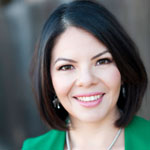Omar Vargas recalls, with vivid clarity, his grandmother’s Ecuadorian home. To many, the cinder-block walls, the dirt floor, the single lightbulb hanging from the ceiling are symbols of quintessential Latin American poverty. But, Vargas’s memories are warm, and seeing that house transform over 35 years and two generations of his family has helped him put the rest of the world in context. Now, as director of government relations for the global industrial air-gas manufacturer Praxair, Inc., Vargas employs what he learned in law school on Capitol Hill—but when negotiating with Latin American officials, nothing’s as valuable as Vargas’s heritage.
 In recruiting me, Praxair made a deliberate decision to ramp-up its engagement with policymakers in state and local government, Washington, DC, and in foreign capitals. As I understand it, my predecessors came up through years of service in a variety of operations and corporate functions such as sales, whereas I’ve spent 20 years in Washington, DC, engaged in politics and public policy. Praxair presently has a smattering of government relations professionals in a few of our key markets around the world and at its corporate headquarters. My charge is to build a global architecture for our government-relations team, collaborate with professionals throughout the company—especially those in our foreign markets—and ultimately build an incredibly well-coordinated, connected global operation.
In recruiting me, Praxair made a deliberate decision to ramp-up its engagement with policymakers in state and local government, Washington, DC, and in foreign capitals. As I understand it, my predecessors came up through years of service in a variety of operations and corporate functions such as sales, whereas I’ve spent 20 years in Washington, DC, engaged in politics and public policy. Praxair presently has a smattering of government relations professionals in a few of our key markets around the world and at its corporate headquarters. My charge is to build a global architecture for our government-relations team, collaborate with professionals throughout the company—especially those in our foreign markets—and ultimately build an incredibly well-coordinated, connected global operation.
The best way to be an advocate for your company and industry is to be of value for policymakers. I tell executives, “My goals are your goals.” I see my job as a tool to help advance the top line and protect the bottom line. I approach my work with policymakers by being as helpful as possible to them and by helping them understand the business implications of the policy proposals they are considering. My job is to translate the expertise of my business colleagues into their language.
If you want the company to succeed, you have to make sure your approach and message is consistent around the world. Medical gases are a very good example. A number of governments are looking at modernizing the regulation of medical gases, and some are looking at the Medical Gas Safety Act—which Praxair championed— and Congress approved in June of 2012 as a model for their own policies. As we engage on this issue internationally, we point back to the lessons we learned in the United States and are encouraging other countries to work with our industry collaboratively to draft a good piece of public policy that may be accepted broadly by stakeholders, especially consumers.
Engagement with policymakers has its core elements: one is being a good advocate; the other piece is relationships. People want to deal with someone they know. It’s incumbent upon government-relations professionals that policymakers have a good impression of them and know they are credible. By making sure there is good confidence and trust between policymakers and your industry, you can be a credible and effective advocate.
It’s always great to start a conversation by talking about how my company is a good corporate citizen and the ways our business goals dovetail with a policymaker’s interests. Praxair focuses on productivity and sustainability because so many of our products and technologies can help deliver solutions. I can have a more credible conversation on environmental and energy policy when I can demonstrate how my company’s technologies are approaching environmental sustainability. Instantly it reduces any barriers that may appear, and we can have a thoughtful conversation about getting to the environmental or energy-policy goal we both want.
One of the benefits I have in being Latino is that I put on a bit of a different face for the company. Latin America is a key market. It’s great for Latin American policy leaders and stakeholders to see someone at headquarters who is Latino. It’s not the critical factor, but it helps to build that confidence and trust in the company that is critical for engaging with policymakers. My father came here from Ecuador, and my mother moved here from Puerto Rico. Though I was born here, my parents made a deliberate effort to keep close ties to our roots, and I think in the long run, that has proved to be incredibly beneficial. When I’m considering issues in the Caribbean or South America and trying to help my business leaders in those countries understand issues, understanding culture, and political processes in those places is incredibly helpful.![]()
To download the “Best of 2013″ edition on your iPad, visit our iTunes app here.

